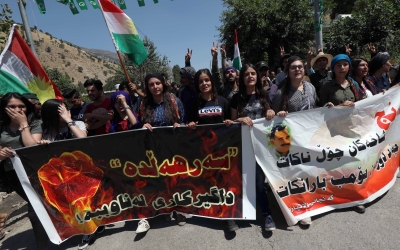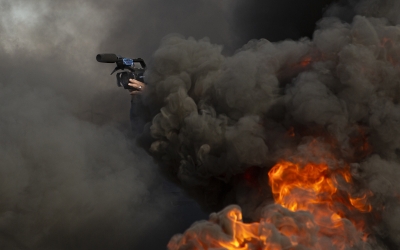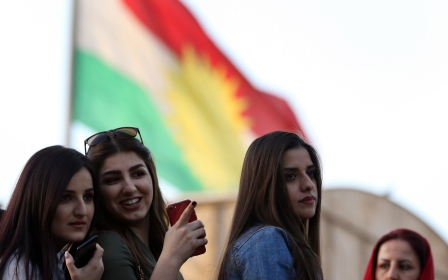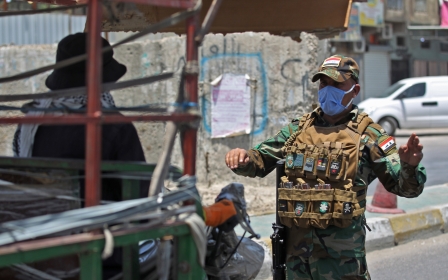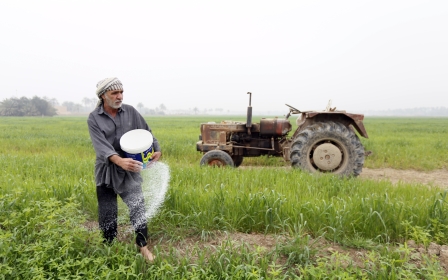Iraq: Officials hail prisoner handover as key step in Arab-Kurdish reconciliation
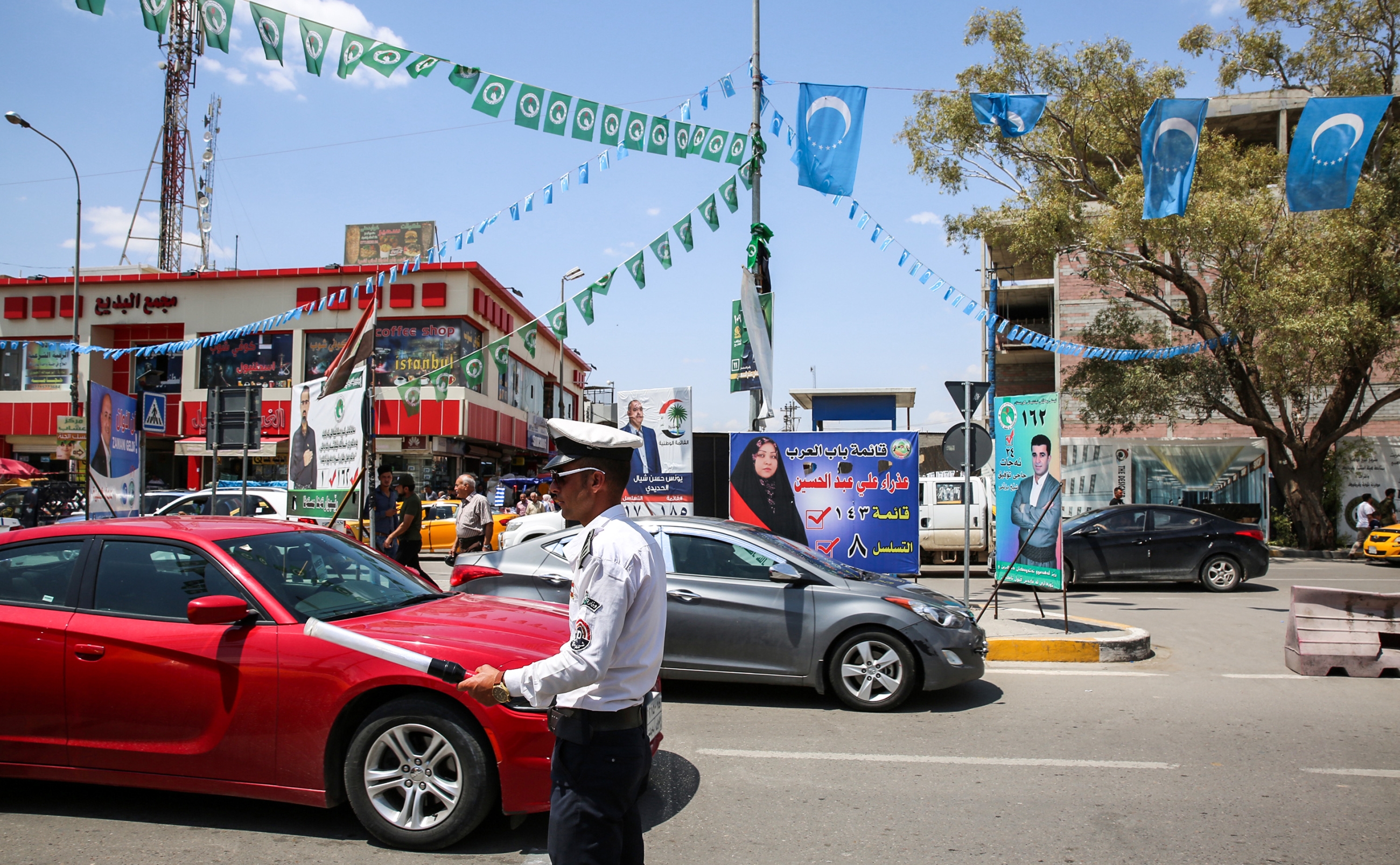
A move by the Patriotic Union of Kurdistan (PUK) to hand over scores of Arab prisoners to Iraqi officials has been hailed by politicians as a potential breakthrough in mending community relations in the flashpoint city of Kirkuk.
The PUK is the second most powerful political party in the autonomous Kurdistan Regional Government (KRG) in northern Iraq.
In May, it announced it was handing over around 176 Arab prisoners, arrested between 2014 and 2017 during the fight against Islamic State (IS), to Iraqi officials in Kirkuk.
The symbolism of the handover taking place in the city, which has been disputed between the KRG and Baghdad since the 2003 invasion that overthrew Saddam Hussein, was apparent.
"We made this initiative in order to normalise and restore life for people across Iraq, create coexistence among all the components in the disputed areas, [and] put an end to bloodshed by all sides,” Mohammed Osman, the head of the PUK’s organisational centre in Kirkuk, told Middle East Eye.
“According to Iraqi law, captives should be tried in the place where they are arrested.
"International human rights groups and the Arab clans have always been urging us to take such a step.”
Kirkuk after IS
The oil-rich city of Kirkuk is home to Kurds, Arabs, Turkmen and others who have lived side-by-side for generations despite the occasional flaring up of tensions.
The biggest threat to coexistence came in 2014 when the IS rampage across northern Iraq reached the gates of the city.
Pushing back against the militant group, Kurdish security forces took control of Kirkuk. It was a controversial move, as according to Iraq's 2005 constitution, the status of the city is to be decided at an undetermined future point through census and referendum.
Between 2014 and 2017, Kurdish authorities - primarily the PUK - detained hundreds of people who they accused of being IS collaborators or spies.
Of those detained, 176 were transferred to the northern PUK stronghold of Sulaymaniyah.
After Baghdad launched a successful campaign to retake Kirkuk in 2017, the status of these detainees became a point of controversy.
The move to hand them back over to Baghdad's security forces in the past two weeks has been hailed as a breakthrough after three years of deadlock over the issue.
Osman said that in decades past, Arabs had killed thousands of Kurds and Kurds had done the same albeit, he said, in self-defence.
“But it is time to end killings and displacements and focus our efforts towards rebuilding our war-torn country,” he said.
'White flag of peaceful coexistence'
In 2017, Human Rights Watch (HRW) reported that more than 350 detainees were being held by the KRG in Kirkuk and that they were feared to have been “forcibly disappeared”.
The Arab community in the city held several demonstrations asking Kurdish authorities to disclose the whereabouts of their detained relatives.
However, Osman said that Arab prisoners were held in facilities run by the KRG Ministry of Peshmerga Affairs in Sulaymaniyah, and that the International Red Cross, HRW and the UN had regularly assessed their situations.
He added that among the 176 prisoners there was a suspect who confessed that he had participated in the 2006 al-Askari Shrine bombing in the Iraqi central city of Samarra, and had also been involved in the killing of journalist Atwar Bahjat.
Ismail al-Hadidi, an adviser to Iraqi President Barham Salih (himself a former PUK politician), said in a phone interview with MEE that he had worked as a mediator and coordinator with all the related sides with regards to the dossier of forcibly missing persons.
“Today the situation is good, and the move by the PUK has largely contributed to peaceful coexistence and boosting ties as well as mutual trust among Kirkuk’s components,” he said.
Sheikh Burhan Mazhar al-Asi, head of the Arab bloc on the Kirkuk Provincial Council, also told MEE that the PUK's move was a step in the right direction.
"Kirkuk’s Arabs are not just ready, but we are the first ones who fly the white flag of peaceful coexistence," he said.
“Sulaymaniyah has its own security agencies, and its legal as well as political positions, and they are dealing with security institutions in Kirkuk according to law. All the suspects will be tried fairly in Iraqi courts.”
Asi added that he hoped that Arab prisoners held in the Kurdish city of Erbil - controlled by the KRG's main ruling Kurdistan Democratic Party (KDP) - would also be handed over, following the PUK's example.
'Not representative'
Although the initiative was welcomed by Iraqi officials and Kirkuk locals, the KRG Ministry of Interior - which is run by the KDP - said in a statement that the PUK had not coordinated with them in handing over the prisoners, and the process was not conducted “according to legal procedures through the KRG”.
Osman told MEE that the KRG Ministry of Interior “does not represent the whole government” and that the representative of the KRG Ministry of Peshmerga in Sulaymaniyah was in close contact with the handover process.
KRG spokesperson Jotyar Adil did not officially respond to a request for comment on the issue, but told MEE via WhatsApp, that "the KRG Minister of Interior has cleared that in a [previous] press conference”.
'Although the Iraqi government has not been sincere in resolving the issue, the KRG has also not been able to have a united Kurdish policy toward Kirkuk'
- Kamal Chomani, analyst
The inability of the PUK and KDP to overcome their differences - not least with regards to Kirkuk where the KDP has maintained a political boycott since 2017 - has been a major factor in hampering attempts at reconciliation with Baghdad, Kamal Chomani, a non-resident fellow at the Tahrir Institute for Middle East Policy, told MEE.
Considering the reviving of IS in areas close to Kirkuk, the need for reconciliation is more pressing than ever.
“Unfortunately KDP and PUK infighting over Kirkuk has also helped obstruct resolving the issue constitutionally," Chomani said.
"Although the Iraqi government has not been sincere in resolving the issue, the KRG has also not been able to have a united Kurdish policy toward Kirkuk.”
Middle East Eye delivers independent and unrivalled coverage and analysis of the Middle East, North Africa and beyond. To learn more about republishing this content and the associated fees, please fill out this form. More about MEE can be found here.


